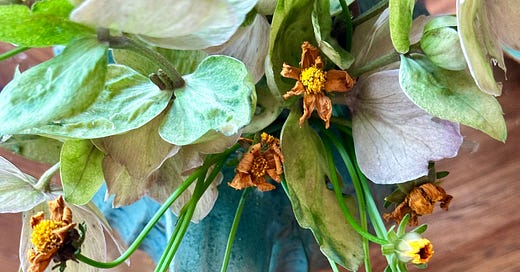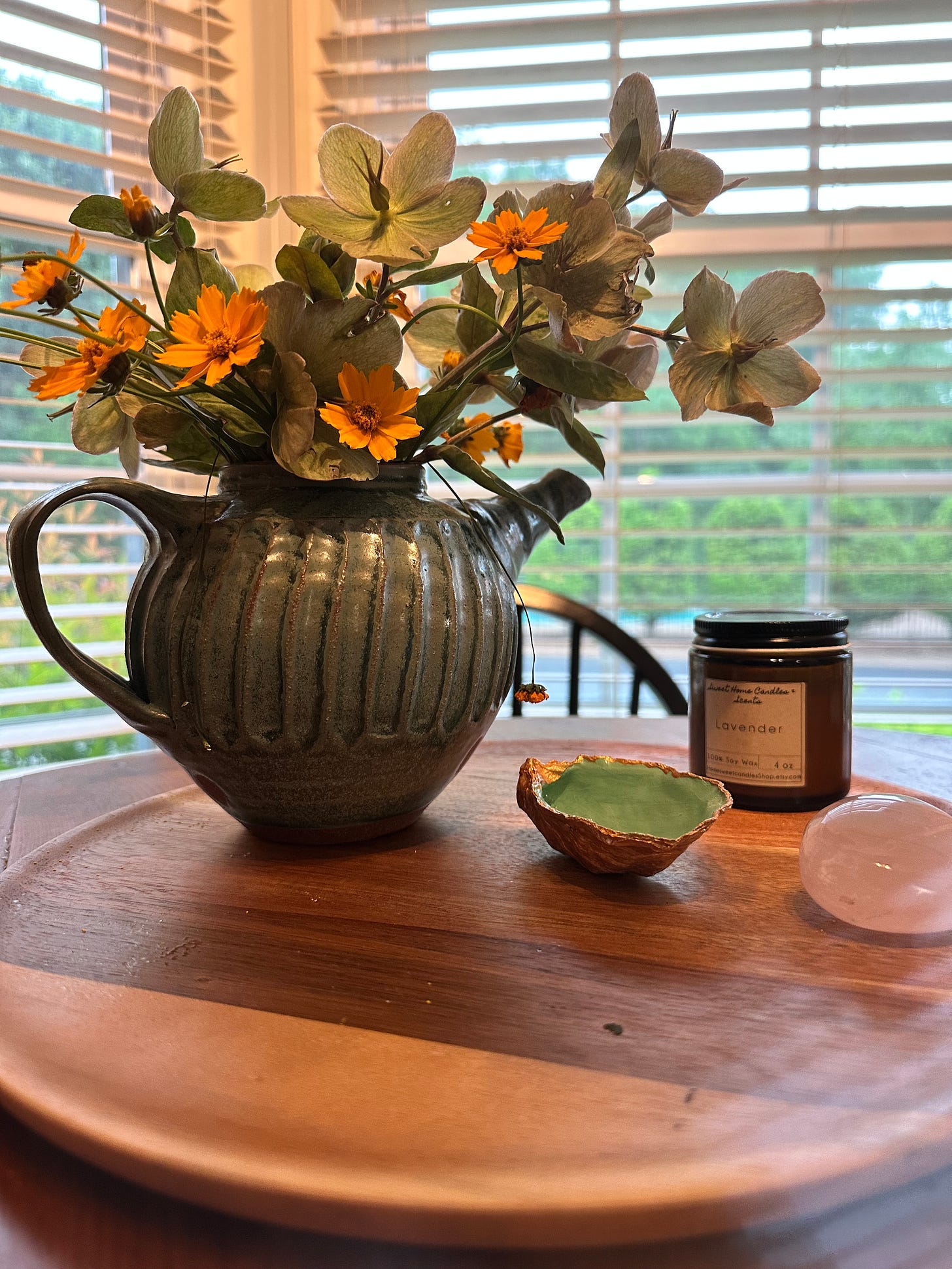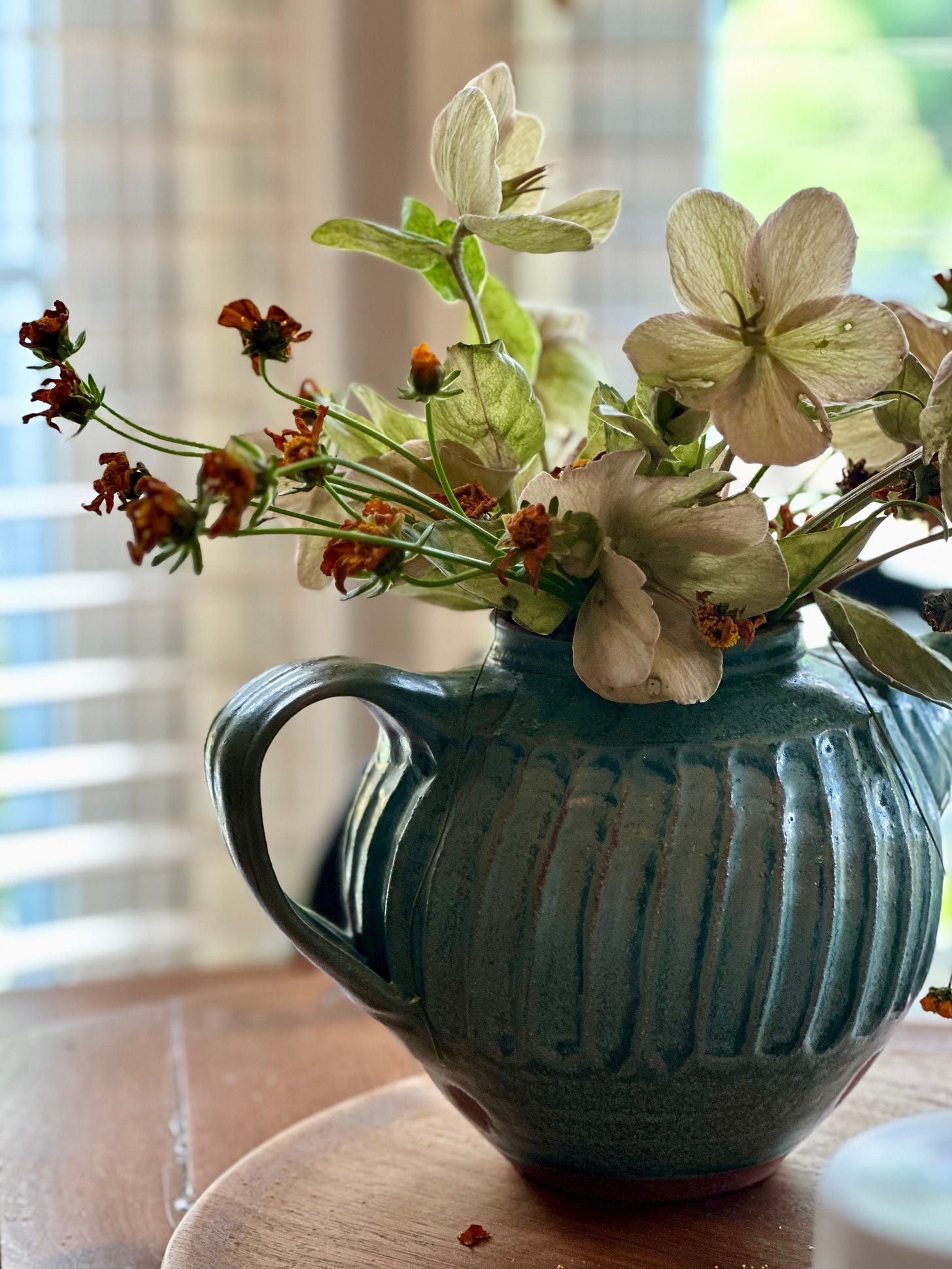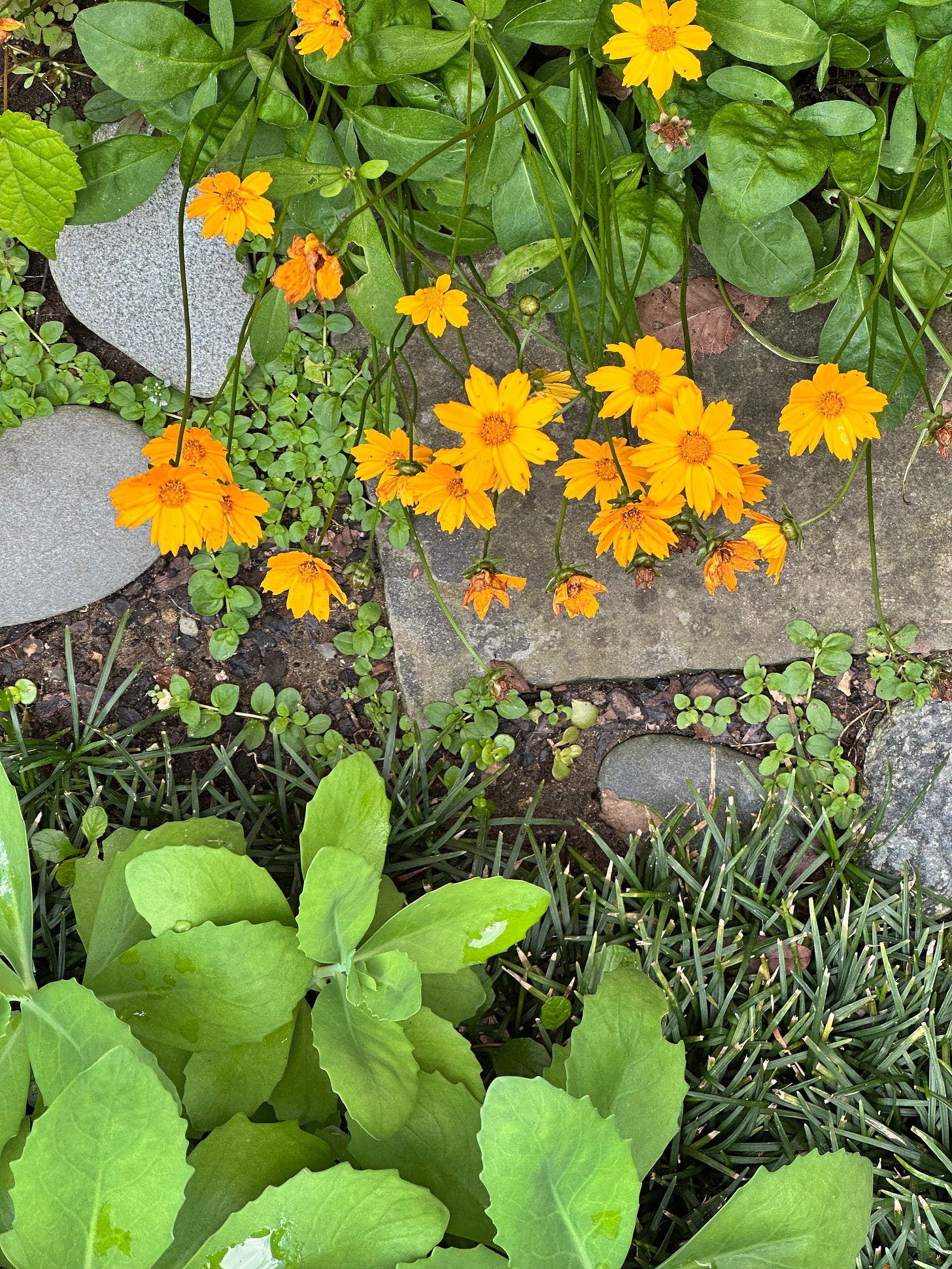“Where’s Grace?”
It’s a question I’m asked frequently when I’m out in public. At a friend’s art opening Saturday night I found myself mildly irritated when asked this question throughout the evening by three people.
They meant well. They cared. They were curious. Folks ask, “Where’s Grace?” because they tend to see us as an inseperable unit. They don’t know the complexities and breadth of her and my lives. That’s not their fault.
Her neurodivergence does not manifest in behaviors that prevent me from taking her out in public. Still, It’s not always easy. I’ve been told we are interesting to watch: how I’ve got a continual sense of how much rein to give her and still carry on a complex conversation with another person.
Grace’s father co-parents and has her three weekends a month and, generally, overnight on Wednesdays. For Grace, it requires flexibility and means environmental diversity and connection with two parents who mutually adore her and whom she adores reciprocally. For, me it’s a recipe for a richer life and better mental health.
I recognize my privilege in both these instances—the ability to go out in public with my autistic loved one and a supportive co-parent.
”Where’s Grace?”
At work. With her father. At home with a caregiver—eating, cooking, working puzzles, playing on her ipad, folding laundry, loading or unloading the dishwasher, taking a walk. At therapy. With her art mentor. Out in community—walking, visiting the library, running errands—with a caregiver. At my sister’s home in SC for the week following Christmas and a week in July….It’s the complex machinery of her days and adult years. And one that I manage. This does not include the cooking, meal planning, shopping, laundry, bathing assistance, medical, hygienic, and nutritional supervision, caregiver management, budget reports, (head banging) medical and systems advocacy and multiple meetings I must conduct to maintain her life and these services.
No one told me it would be this complex after Grace exited the school system. In fact, a mother I quizzed said it got easier when you no longer had to battle for school services. In the intervening 20 years that I asked that question, the state created overdue programming for people with intellectual and developmental disabilities. We’re nearly a decade in now and it’s much more difficult than advocating for adequate educational programming. There’s federal and state services and then moving parts to both. See the list above. Again, I acknowledge my fortune and privilege to have gained these services and also the ability to manage them—though at great mental, emotional, and physical cost.
As the fall months of 2023 waned, I had a reoccurring vision of my body lying flat on the side of a grassy hill. Arms and legs splayed. The picture of my posture symbolized that all fuel sources were spent. I was left fried. Crisp. Singed.
In the months leading up to that, my inner vision was of me spinning so many plates on each hand, arm, and atop my head that I knew that a crash was inevitable. The stacks were bowing and swaying and an internal silent whisper within me kept saying: “They’re gonna crash. They’re gonna crash.” My mind’s eye would catch a glimpse of perilously swaying plates.
I’ve always referred to myself as a plate spinner. What I didn’t know then is that the plates represented not only the multiple roles that a special needs mother must assume in the care of her loved one, but also the many interests typical of a person with ADHD.
The year 2023 started off with a harsh, surprising deconstruction of one of the many systems I manage for my daughter’s adult disability services. A service that had worked well for years. It took me nine months to understand the problem’s unnecessary, harmful, politically grotesque nature and to disentangle ourselves from the provider system. Switching from that particular provider system also meant assuming an additional layer of responsibility. Meanwhile, another ego-driven system began changing for the worse. Plus, I was contending with yet a third severely punitive systems matter that would persist into almost all of 2024. The details are complicated, dizzying, and also confidential.
So, that hill I laid splayed upon….A chance conversation during Christmas break with a friend about her recent diagnosis with ADHD spurred me to pursue a diagnosis, which I received February of 2024. What surprised me was that I received additional unexpected diagnoses of subclinical (mild) depression and anxiety.
I now know that diagnoses of depression and anxiety frequently precede diagnoses of ADHD in midlife women, though I’m now north of the term “midlife.” (I’m also now in virtual groups of women in their 50s, 60s, and 70s who are also new to confirmed ADHD and comorbid diagnoses.)
As I edited pictures documenting the lifespan of these flowers from my garden, I realized they told a story. I adore the patch of Lenten Roses that bloom in my small patio garden each winter. As I emotionally slogged through the winter of 2024, I’d give them a passing glance as I exited my condo and proceeded to the carport and reverse. The fog of my depression was too thick to stop and clip their pink blossoms. They’d rapid-tug at the hem of my quick-passing heart. I faintly yearned to admire their tender beauty, but the emotional fatigue was so thick I missed their joyful offerings for months. As I began therapy by late Spring, my spirit revived and I was finally able to stop and savor their glory and clip some for our table. Like this year’s pictured cropped they’d faded to a pale green by then.
But long before this plunge into burnout (still healing) and the reality plunge into aging parenting, (also for which no one prepared me,) I savored the dying blossoms. They wilt, shrivel, and drop as dinner table centerpieces. They remain on table too long. Sometimes because of procrastination, and, equally, other times, because I choose marvel at their beautiful slow descent to death. Often, I’ll take them out to our garden and arrange them flat on a small stoop, composing a dying still life, as they continue to fade. Even void of color, their beauty evident in their intricate architecture.
Ebb. Flow. Life. Vibrance. Fading. Change. Beauty still in their complexity and death. I want to witness it. To experience, dissect, and understand. Ebb. Flow. Life.
Change. Is in the works.
*The lovely green, clay teapot, shown, was crafted by Becca Ganick, one of Middle Tennessee’s most talented potters and the co-owner of Shimai Gallery on Highway 100 in Nashville. The gallery of area artisan craft is within a small cottage tucked into the back of the famed Loveless Cafe complex. My daughter (Grace Goad)’s art is shown and available there, as well.
*As this digital space becomes more crowded, your email replies, forwards, hearts, comments, comments, and “restacks,” are heart-centered fuel for lesser known writers, such as yours truly. Subscriptions are free or for a range as low as $8 monthly or $80+ annually. You decide. Thank you for reading.







